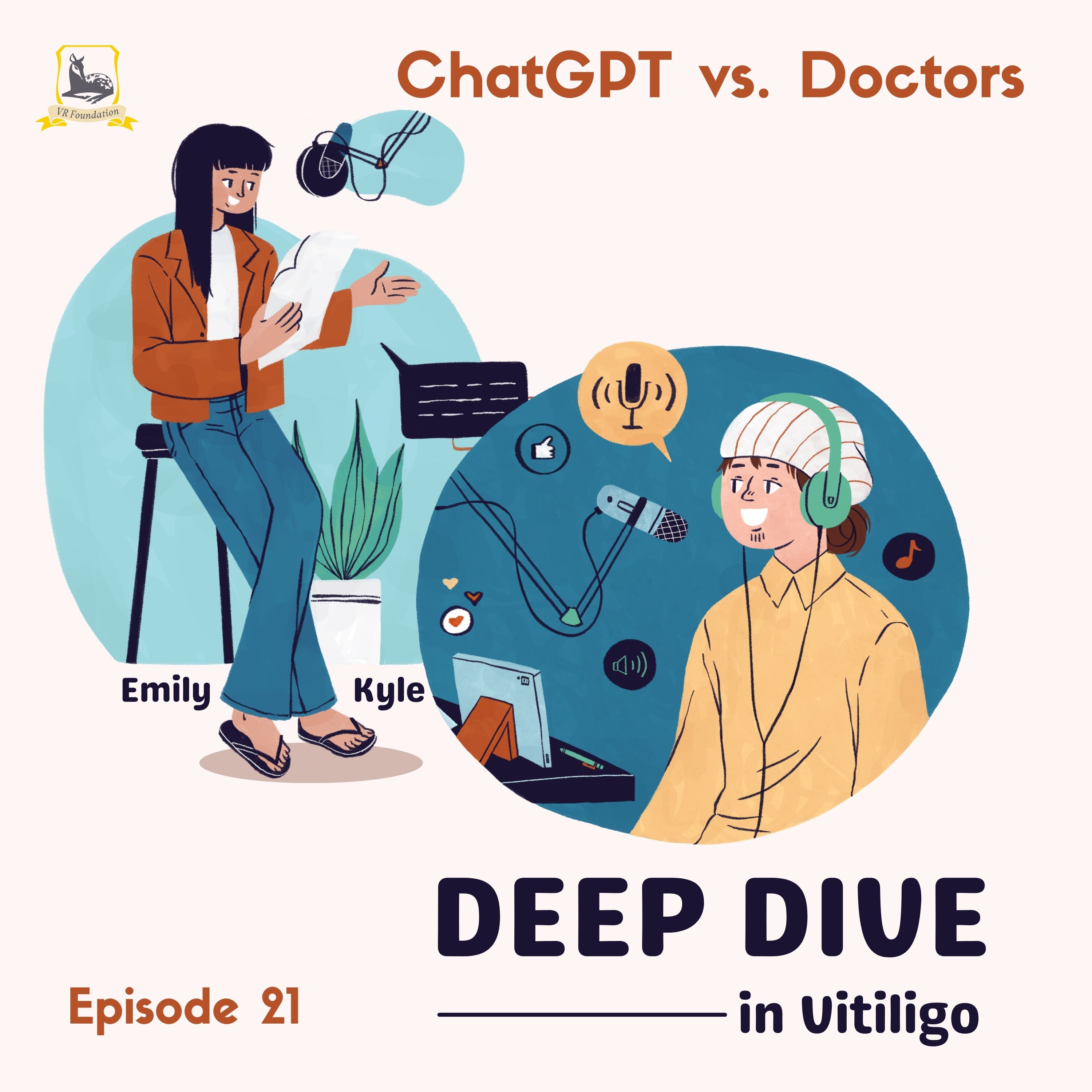Our work is entirely funded by private donations – we receive no money from government. Your money will help us continue funding research into vitiligo and supporting people affected by the condition.
Podcast
ChatGPT vs. Doctors: The Promise and Pitfalls of AI in Medical Diagnosis (Ep. 21)
Two new studies reveal the promise and challenges of using AI-chatbots in healthcare.
In one study, ChatGPT outperformed doctors in diagnosing illnesses from case histories, with a 90% accuracy rate compared to doctors' 76%. However, it also showed that many doctors stick to their own judgment and don’t fully utilize AI’s potential.
Another study focused on pharmacy settings found ChatGPT struggled with complex medical questions, often providing inaccurate or even made-up answers.
This episode unpacks what these findings mean for the future of healthcare. Can AI become a trusted partner for doctors? What needs to change to make it work—and could embracing AI save lives? Let’s dive in.

FAQOther Questions
- Polypodium leucotomos as an adjunct treatment for vitiligo?
The tropical fern Polypodium leucotomos (also known as Polypodium aureum) and its relative Polypodium decumanumhave shown potential benefits for managing vitiligo and other auto...
- Shall I take vitamin D for my vitiligo?
Vitamin D plays a central role in the prevention of different inflammatory and chronic diseases. Consuming 1,000–4,000 IU (25–100 mcg) of vitamin D3 daily should be ideal for mo...
- Which is better for judging vitiligo — Wood’s lamp or dermoscopy?
A recent study out of India compared the two head-to-head. Both tools correlated fairly well with clinical criteria, but dermoscopy had a slight edge: Wood’s lamp: sensitivit...
Though it is not always easy to treat vitiligo, there is much to be gained by clearly understanding the diagnosis, the future implications, treatment options and their outcomes.
Many people deal with vitiligo while remaining in the public eye, maintaining a positive outlook, and having a successful career.
Copyright (C) Bodolóczki JúliaBy taking a little time to fill in the anonymous questionnaire, you can help researchers better understand and fight vitiligo.